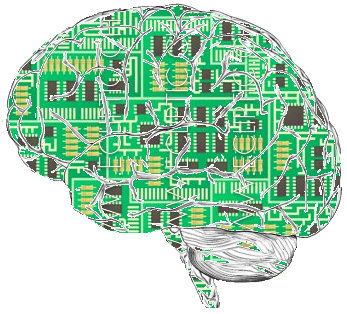The EU’s white paper on Artificial Intelligence: Pushing for progress while keeping Pandora’s box locked?

Over the last couple of days, several high ranking Silicon Valley executives — including Facebook CEO Mark Zuckerberg — paid visits to Brussels. In the build-up to this week’s announcement, they all seemingly tried to get a foot in the door of the talks that may well be the first step to the establishment of a comprehensive set of rules regarding the development and usage of Artificial Intelligence (AI). This Wednesday, the EU Commission finally published its highly anticipated white paper outlining its strategy on the issue. The paper is sketching an ambitious collective European approach to the technology that is said to combine innovation and regulation.
Ahead of the publication this week, the latter part of the strategy, caught the attention of the giants of the industry. The concerns seem well-founded since the announcement comes on the tail end of a set of actions undertaken by the EU institutions to limit the power of Silicon Valley in Europe. Consequently, it did not come as a surprise to many experts that the white paper entails positions aimed at diffusing the near-monopoly on user data US firms hold.
In particular, it is quite apparent that the Commission is putting forward an explicitly European approach to the topic that will entail what is called a “human-centric approach” to the issue. Concretely, this will involve an investigation of possible breaches of fundamental laws that are related to the development and application of AI systems, giving citizens increased power over their own data. In this regard, the Commission wants to tackle the issues that may arise from the new possibilities opened up by AI that are yet not subject to forms of jurisdiction. The new possibilities cover a variety of new scenarios that range from data protection to regulation on the functioning of products.
Although the EU already passed exhaustive legislation on data protection that assured a further grip on tech companies, the analytical possibilities are getting significantly more enhanced by the use of AI, placing it out of reach for current legislative measures. One of such areas, for instance, may be the advancements AI offers in terms of the analysis of human behavior. Going beyond the simple recording of consumer data, AI enables companies to determine patterns of behaviour of customers that form a part of private information not yet covered by current legislation.
Besides providing companies with new methods of analysing their potential customers, AI also leads to a changing functionality of products themselves, leading to noteworthy consequences for regulations on said products. The modification of a product over its lifespan, for example, opens up an entirely new field of liabilities that should be addressed in a legal framework. These potentially include new risks arising from the continuous development of the product that differs from its initial evaluation upon entering the market.
While the announcement is undoubtedly path-shaping for future evaluation on the usage of AI in society, the white paper also emphasizes a European answer to the leading role of the US and China in the field. The new Commission made clear that Europe should not only be the front runner in terms of legislation for AI but also catch up in terms of innovation and application in the area.
To do so, the paper proposes a 20 billion annual investment in research and funds for small companies and start-ups, which, apart from financing innovation, also serve to keep European talent and progress from being bought by the giants of the industry. Moreover, the plan focuses on European strengths that could prove to be an asset in future developments. In this regard, the creation of an internal market for data, to harmonize member state’s efforts and lay out the groundwork for more innovation, is a prime objective of Brussels. This advancement in AI is hoped to benefit a variety of policy areas deemed important by the Commission. These fields include agricultural policies, traffic, and climate change.
While the future possibilities opened by AI may align with policy objectives of the Commission, time will tell whether the Brussel’s plan will be successful in merging more stringent regulations with increased innovation. Although there seems to be a consensus on the necessity for laws on the use of Artificial Intelligence, overtly burdensome rules could limit the development of European AI. Experts remain sceptical, especially regarding the latter part. While the EU has proven time and time again that it can deliver in terms of regulating the market, it will have to confirm whether it can simultaneously pave the way for European companies to grow on their own and catch up to the leaders in the field.
Further Readings:
https://www.euractiv.com/wp-content/uploads/sites/2/2020/01/AI-white-paper-EURACTIV.pdf
https://sifted.eu/articles/europe-is-losing-the-ai-race/
https://edition.cnn.com/2020/02/19/tech/eu-data-artificial-intelligence/index.html
Featured image:
No machine-readable author provided. Gengiskanhg assumed (based on copyright claims). (https://commons.wikimedia.org/wiki/File:ArtificialFictionBrain.png), „ArtificialFictionBrain“, https://creativecommons.org/licenses/by-sa/3.0/legalcode.



